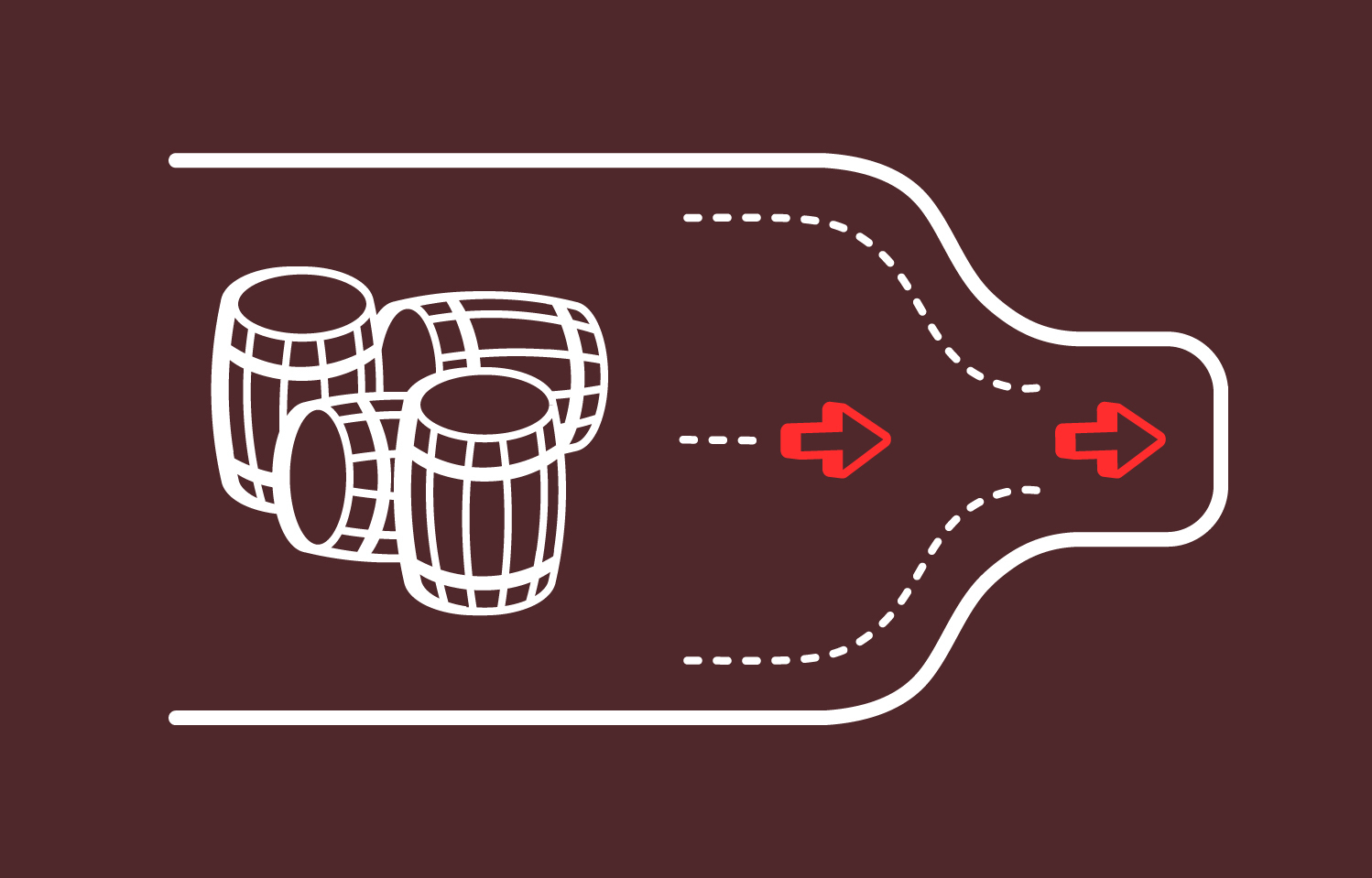Retail is going digital: More than 50,000 retailers could disappear from brick and mortar locations over the next five years. Already, brands like Bed Bath & Beyond, Foot Locker, and Bath & Body Works have closed hundreds of stores due to inflation and changing consumer behavior. As the retail landscape evolves, it’s critical businesses know what shoppers want—and that they’re able to adapt to fast-changing preferences and market conditions. Blockchain technology has emerged as a solution to help them respond to consumer preferences while also improving internal operations.
Blockchain technology enables businesses to more efficiently and securely store information, record transactions and prove ownership, all on a distributed, tamper-proof ledger. It can help businesses bring more transparency to their supply chain, ensuring the right products get to buyers safely and on-time, while keeping customers satisfied and willing to return. This is one major driver of growing blockchain adoption within the global retail industry.
But leveraging other innovative blockchain technology features—from gamification to product origin verification—can help retail businesses come up with more creative and memorable engagement strategies that drive greater customer engagement and satisfaction.
Direct Customer Engagement
Even though inflation has made buyers cautious about spending, the vast majority (86%) of customers still want to engage with the businesses they regularly patronize. And a deal can be the difference between a closed sale or not: 42% of Gen Z customers, 41% of Millenials and 37% of Gen X customers will choose not to shop at a brand due to a lack of discounts. But blockchain technology enables retailers to easily and securely contact customers to share coupons, loyalty points, and other rewards to keep them engaged.
How do rewards work using blockchain technology? Businesses create an account or a “wallet,” that customers can access either via downloadable app, a text message, or web browser. Blockchain technology then becomes the vehicle through which retailers upload those coupons and rewards onto customers' accounts.
For example, a food and beverage company that stores their transaction data on blockchain can recognize when a product is selling slower than usual. Noticing that the product is expiring soon, leaders can quickly generate a promotion, like buy-one-get-one free, preventing product waste.
Brands are just beginning to explore this concept in innovative ways: Last year, Nike launched a beta version of .Swoosh, a digital community powered by blockchain technology. Users are able to collect virtual shoes and jerseys to wear in digital games, and also unlock access to physical products or intimate conversations with athletes or designers. Today, there are 300,000 .Swoosh IDs minted.
Rather than crowding a customer’s inbox with deals, this platform enables retailers to delight customers with a more immersive brand experience. It brings a sense of gamification to commerce, which can be especially appealing to Millennials and Gen Z, a generation of gamers who represent 40% of the consumer market.
More Secure, Transparent Transactions
Before consumers—especially Gen Z shoppers—are willing to participate in more dynamic rewards programs with retailers, it’s becoming increasingly important for brands to prioritize environmental, social, and corporate governance. Over half of Gen Z buyers prioritize sustainability when shopping. And if a business has poor ethics rankings, 20% of Gen Z consumers will consider it a dealbreaker.
Most retailers recognize this: 88% of ESG initiatives have maintained or increased in importance this year compared to last, and 84% of ESG budgets remaining equal or higher than 2022. Businesses that use blockchain technology to track and trace where supplies are sourced and how they are handled are better equipped to be transparent with consumers about where goods are coming from and how they get to store shelves.
Along with greater transparency, blockchain technology provides retailers with greater trust. Just one instance of coupon fraud can cost retailers and manufacturers up to $31 million in sales. But because blockchain technology is immutable and tamper-proof, retailers can worry less about fraud, and instead focus on providing greater deals for their customers. And, critically, blockchain technology can also employ pseudonymity to help improve privacy best practices, ensuring that personal customer information is never directly exposed.
Improving Customer Experience and a Creating a More Resilient Business
With blockchain technology, retailers can build greater customer engagement by offering innovative rewards and loyalty programs and providing consumers with more insight into the ethics of their business. The best part? Working on a blockchain solution isn’t only beneficial for customers. Implementation can also unlock more revenue opportunities and cost efficiency for a business.
Over the next several months, amid ongoing economic uncertainty, the majority of retailers are going to be prioritizing more digital sales channels. Meanwhile, consumers are becoming increasingly interested in exploring new ways to shop, from virtual reality to text message.
To prepare for what’s ahead, retailers can start by exploring what’s possible with a blockchain technology solution provider like Casper Labs. We provide hands-on support via a managed services offering, ensuring any retailer can build trust, personalization, security, and loyalty into their retail operations.
Learn how retail businesses can work with Casper Labs.

![[Report] State of Enterprise Blockchain Adoption 2023 | Casper Labs](https://casperlabs.io/hubfs/Imported_Blog_Media/Blog-StateofEnterprise-jpg-1673554558669-1.jpg)